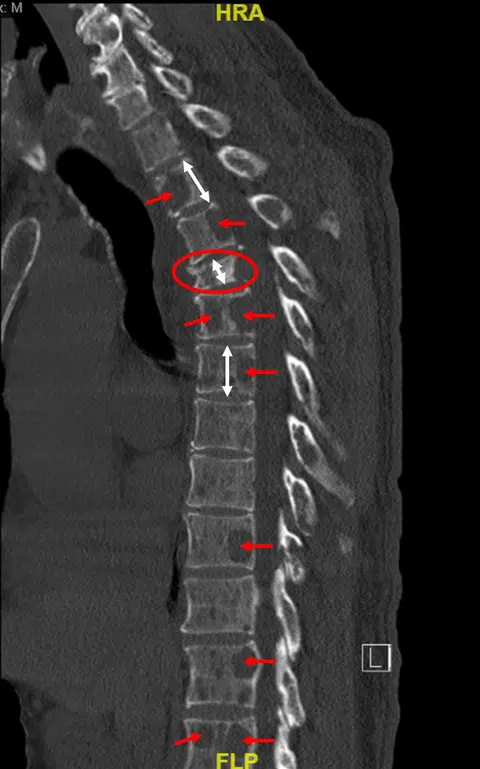Ong Beng Seng to be sentenced on Aug 15 for abetting obstruction of justice
The property tycoon had pleaded guilty in a case related to former minister S. Iswaran.
Property tycoon Ong Beng Seng pleaded guilty on Aug 4 to abetting the obstruction of justice in a case linked to former transport minister S. Iswaran.
Ong is expected to be sentenced on Aug 15. His bail of $800,000 has been extended.
The prosecution acknowledged that while eight weeks imprisonment would ordinarily be warranted, judicial mercy should be exercised in this case due to Ong's incurable medical conditions.
Imprisonment would thus result in an increased risk of endangering his life, added the prosecuting team.
In 2020, Ong was diagnosed with advanced multiple myeloma, a cancer which affects his white blood cells that are crucial to the body's immune response.
His lawyer, Senior Counsel Cavinder Bull, said Ong suffers from a devastating cocktail of medical problems, and imprisoning him would dramatically increase life-threatening risks for him.
Ong's hearing on Aug 4 was delayed after two fire alarms went off just as the case was about to begin. The first was triggered the moment Principal District Judge Lee Lit Cheng walked into the room.
After a delay of almost an hour, the statement of facts detailing Ong's offences were read out by the prosecution in a packed courtroom.
Addressing the court on Ong's abetment of obstruction of justice offence, the prosecuting team said Ong asked Mr Iswaran in December 2022 if the former minister would like to join Ong on a trip to Qatar.
Ong told Mr Iswaran he would be his guest and travelling on his private jet. The businessman added he would take care of all of Mr Iswaran's expenses for the trip, including his hotel accommodation.
Mr Iswaran accepted Ong's offer.
On Dec 10, 2022, Mr Iswaran travelled to Doha, Qatar, on Ong's private jet, with the flight valued at around US$7,700 (S$10,410).
Mr Iswaran checked into the Four Seasons Hotel, which cost $4,737.63 for a one-night stay.
The prosecution said Mr Iswaran did not pay for his flight to Doha or hotel accommodation, and the hotel accommodation was paid for by Singapore GP on Ong's instructions.
After one night in Doha, Mr Iswaran returned to Singapore on a business class flight valued at $5,700, which Singapore GP also paid for.
The prosecution said: "Iswaran did not declare to the Government of Singapore that he had obtained the outbound flight on the accused's private jet, the hotel accommodation at the Four Seasons Hotel Doha, or the Doha-SG Flight ticket from the accused."
In May 2023, while the Corrupt Practices Investigation Bureau (CPIB) was investigating a separate matter relating to Ong's associates, it came across the flight manifest of the outbound flight on Ong's private jet which Mr Iswaran took to Doha.
On May 18, Ong was informed by his associates that CPIB had seized the flight manifest which had details of the Doha trip.
Ong spoke to Mr Iswaran over the phone and told him CPIB had the flight manifest.
Mr Iswaran asked Ong to have Singapore GP bill him for the Doha trip, including the flight to Singapore on Dec 11, 2022.
Ong agreed and had Singapore GP director Mok Chee Liang to arrange for the payment, and told Mr Mok to keep proper records of this.
On May 24, 2023, Mr Mok emailed Mr Iswaran's personal assistant with an invoice for the flight from Doha to Singapore.
Mr Iswaran then issued a cheque for $5,700 to Singapore GP, which the prosecution said had a tendency to obstruct the course of justice, as it made it less likely that he would be investigated by CPIB in relation to the Doha trip.
The prosecution said Ong also knew that Mr Iswaran's act of making payment for the flight from Doha to Singapore was likely to obstruct the course of justice.
On Oct 3, 2024, Mr Iswaran was handed a jail term of 12 months after he pleaded guilty to five charges, including four for obtaining valuable items as a public servant.
Prosecution does not object to fine for Ong
The prosecution team, led by Deputy Chief Prosecutor Christopher Ong, said judicial mercy should be exercised due to the severity of Ong's medical conditions.
Judicial mercy is the discretionary power of Singapore's courts to give a more lenient sentence because of exceptional mitigating circumstances. It has a high threshold and has so far been exercised in only two types of situations.
The first is where the offender is suffering from a terminal illness, while the second is where the offender is so ill that jail time would carry a high risk of endangering his life.
The prosecution said Ong's actions in the crime were serious, as it could have impeded CPIB's investigations.
The prosecution also explained why Ong's case qualified for judicial mercy to be applied.
"Treatment is continuous to delay relapse, but the disease will eventually progress, requiring a change in treatment, and eventually patients will die from refractory disease," said the prosecution.
"The accused also has peripheral vascular disease of both feet, with a non-healing toe wound that places him at risk of infection and gangrene."
In a lengthy mitigation, SC Bull said the cancer has compromised Ong's spine, and a metal rod has been inserted in it.
If infected, the result would be catastrophic, he added.
Besides the risk of infection, SC Bull said the medical condition has had a destructive impact on Ong's skeletal system.
While showing a radiology photo to Judge Lee, SC Bull said the cancer had hollowed out his spinal vertebrae.

This means that the strength of Ong's spine has been so compromised, any fall or injury could result in permanent disability or life-threatening injury.
Those convicted of the abetment of obstruction of justice can be jailed for up to seven years, fined or both.
Nadine Chua for The Straits Times